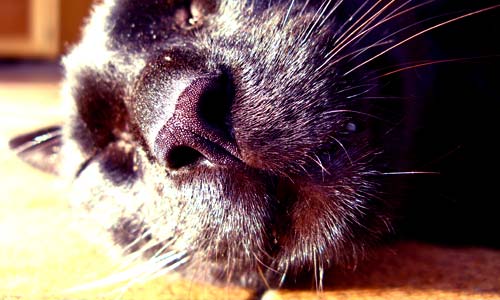
And here we thought cats were lazy. They were just being Geniuses. Why? Read-on:
Results of the study by UPenn will probably strike sheer-terror into the hearts of late-shift-workers, college-students, Zach Braffs, and new-parents alike.
Their CSCN team decided to test what it’s like for the Brain after an All-Nighter or going past your natural bedtime due to a late-shift job.
And One thing they found was: Your brain is OK at recovering after a little missed-sleep-cycle on a [very] short-term basis.
HOWEVER, The Other Thing they found was: Your brain is Unlikely to recover [-ever] from repeated sleep-deficits, especially if your cycle is exaggerated instead of just moved earlier or later.
The catchphrase used was, “Extended Wakefulness”.
Wait, it gets Worse:
Not only did they find that the Awareness Zone of your brain called the LC (or Locus Coeruleus) was unlikely to be protected by the helpful protein (SIRT-3) that usually steps-in at only the First Incident of sleep-loss.
They found that in the test-animals, [ahem] TWENTY-FIVE (25) PERCENT of the neurons in that region –Died.
-And they could not be Regenerated or “Fixed”;
Even with 3 Days of Catch-Up Sleep.
Now for the nitpickings:
Neither the Abstract or the other Articles on this study mention Exactly How Many Hours they considered for their “Extended-Wakefulness” term.
They also didn’t say How Many Days they kept the mice up in “Extended-Wakefulness”. -One might assume it was 5, because that’s what a work-week is, but no say in Abstract.
It also calls the study-subjects “Wild-Type Mice”.

-There may be an outside-chance of some adaptations that Humans have evolved over the years, as opposed to these mice, which may never have had an odd day in their entire evolution.
Further Out:
Though the study Focused on the LC, because that’s where Alertness lives. The researchers did not rule-out ANY BRAIN REGION as potentially being un-damaged by the ravages of chronic-sleep-loss.
Veasey also notes that damage created in One region of the brain, through One mechanism -May Also Set The Stage or Accelerate other diseases associated with brain-damage & malfunction; -Like Alzheimer’s and Parkinson’s.
The only hope we have is that human-adaptation, genetic-variation, shifting time-frames and maybe things like Blackout-Curtains can help us avoid some of this potential damage.
-That, and the fact that biochemists already understand how to Over-Express the protein SIRT-3.
And that’s important because sometime in the future, there might be a “Hangover-Helper”-type pill to help gird your brain against a mistake or two in your sleep-practices.
Maybe it already exists and we call it “Melatonin”? Or “Ambien”?
-Or even “Coffee”.

The only thing left for the project is to procure some deceased, shift-working/sleep-deprived actual humans and have the Zombies Doctors cut up their brains and eat them study their LCs to see if there really is no mitigating system in place for us.
But until that day, GET YOUR Z’s!!! Because it’s looking like chronic sleep-problems are a Lot more serious than we once thought.
Check out the Links for the rest of the Details:
Photo Credits:
“Cat”, by Martin Boose, promicabana.de
“Zombie Girl”, by Mislav Marohnić
Scumbag Brain Meme, by KnowYourMeme user ivanp
Links:
• Source: UPenn-News
• via: Slashdot
• More Coverage: CNN
• Source Study:JNeuroscience-Extended Wakefulness: Compromised Metabolics in and Degeneration of Locus Coeruleus Neurons














